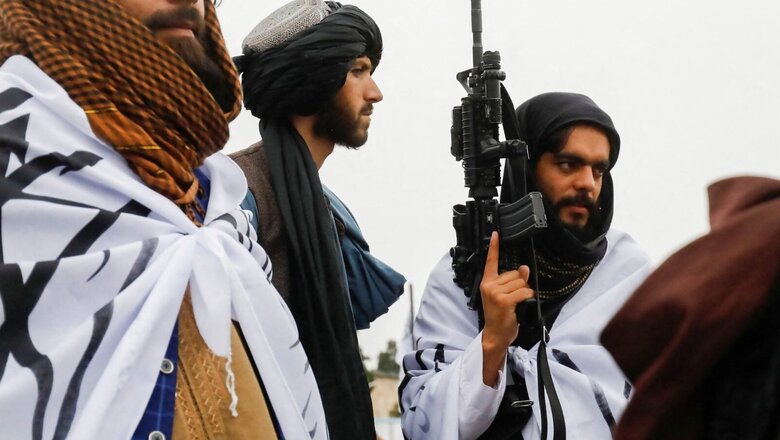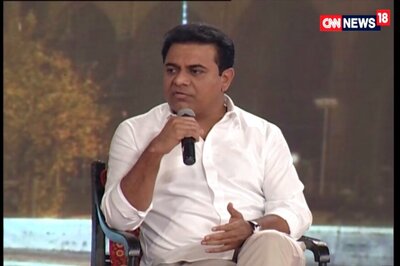
views
Participating in a panel discussion at the Munich Security Conference on February 18 and in a subsequent media interview the next day, Pakistan’s Foreign Minister Bilawal Bhutto Zardari implicitly pleaded with the international community to build the Taliban government (which is technically an interim one in Afghanistan) capacities to take on international terrorist groups operating on its soil provided it demonstrated the will to do so. While making this pitch he said that current-day Afghanistan is an “alphabet soup of terrorist organisations”. He asserted that these terrorist groups cooperated and coordinated far more among themselves than the international community did to combat them for it worked in silos. Thus, he said, Pakistan was focused on the Tehreek-e-Taliban-e-Pakistan (TTP) and the Balochistan Liberation Army (BLA) while, for instance, China was concerned with the Uighur militant group ETIM.
It is ironic that within a year and a half of the Taliban takeover of Kabul which the Pakistan strategic community hailed as a major victory of its Afghan policy the country’s establishment is showing such great disillusionment with its protégé, the Afghan Taliban. Clearly, the Afghan Taliban leadership is unwilling to do Pakistan’s bidding. This has led to a degree of estrangement between Kabul and Islamabad/Rawalpindi. The causes of the distance between them are not confined to the TTP card which the Afghan Taliban are playing adroitly but also because the Taliban leadership is not willing to show any flexibility on issues of concern to the international community. These include those relating to gender, the establishment of an inclusive government and a serious attempt to control global terrorist groups which have a presence on Afghan soil.
Bilawal Bhutto Zardari echoed international concerns on these during his comments in Munich but the fact remains that Pakistan is really and only interested in the Afghan Taliban preventing the TTP from carrying out attacks in Pakistani territory and in not allowing the BLA any space in Afghanistan.
It is also significant but not surprising that the Pakistan Foreign Minister did not focus on the internal situation in Afghanistan and on its attempt to guide Kabul’s foreign outlook and, in this context, particularly influence it negatively against India. In this, it has not met with success for the Taliban have clearly indicated an interest in enhancing its ties with India. If there are inhibitions in developing India’s ties with the current authorities in Kabul they lie in Delhi, not in Kabul.
That said, it needs to be examined how Pakistan is dealing with the Taliban especially as it has shown a disregard for its neighbour’s interest in assisting it to control the TTP.
Ground reports from Afghanistan indicate that divisions are growing between the old leadership based in Kandahar led by Taliban supremo Mullah Haibatullah Akhund and the younger leaders including those of the Haqqani network led by Sirajuddin who is the interim interior minister as well as Taliban founder the late Mullah Omar’s son Mullah Yakub who is the defence minister and whose power base is in Kandahar. The old leaders continue to be wedded to traditional Taliban ideology and are tightening the screws on gender issues including female education. These leaders feel that there is now little that the world can do to effectively pressure them and indeed they can hold the world hostage to their creed on gender. The younger leaders are more aware of Afghanistan’s need for funds and quietly, without publicly taking on the old leaders, point to the fact that various Islamic countries practise the provisions of the Sharia differently and that winds of change are blowing through even staunchly conservative societies such as those of the Arab Peninsula states.
There is no clear evidence of whether Pakistan is supporting the old Kandahar-based leadership or is going along with the younger leaders. It would be logical for it to support the latter if it wants the group to concede to the demands of the international community on gender. It would be difficult though for any part of the group to move on the inclusive government issue. At most, it may be willing to accommodate officials and technocrats working in senior positions of the erstwhile Republic. What would matter to Pakistan is who among the Taliban is willing to deliver the TTP and there is no clarity on this issue. This is putting Pakistan in a fix. In the 1970s when Pakistan was faced with Kabul playing the Pashtunistan card it focused on the Islamists. In the 1980s it built Gulbuddin Hekmetyar but when he could not counter Ahmad Shah Masood it gave up on him and built up the Taliban. Now, if the Taliban do not do its bidding would it seek to split the group or shift its attention to building a counterforce? The old members of the Republic cannot be an option so what would be the core of such a force if the Pakistani agencies begin to think along these lines? This may be called speculative or futuristic but it is essential for Indian policy planners to take such scenarios into account.
In this context, it is noteworthy that the ranks of the Afghan Daesh are growing too. It appears that some of the demobilised soldiers of the Republic are joining the group’s ranks on account of financial considerations. This would be akin to the growth of ISIS in Iraq where many officers and soldiers of Saddam Hussein’s army joined the group. The Taliban and Daesh are foes. There is some speculation that Pakistan agencies are quietly helping the Afghan Daesh to put pressure on the Taliban in the context of its attitude towards the TTP. While this would be an extremely dangerous gambit on the part of Pakistan the intelligence agencies of the country are known to play with fire to achieve short-term objectives.
At a more practical level, intra-Taliban differences are playing out in the treatment of women in hospitals. In Kandahar, the old leaders are unwilling now to allow male doctors to attend to the ladies of their families but this is not so, at least so far, in Kabul where male doctors see female patients too. At the same time, the old leaders have ordered that all doctors, including those in Kabul, should now wear traditional Afghan dress and grow beards.
The economic situation continues to be very difficult for common Afghans. This is leading to a degree of restlessness among the people who have suffered much. It remains to be seen whether the common Afghans’ desperation grows to such an extent that it leads to demonstrations against the Taliban in Kabul and other major cities. Such demonstrations would naturally be a major development and the question is how would the Taliban leadership handle them. As it is, ground reports from Afghanistan are indicating that many of the Taliban soldiers are returning to their villages and those who have joined government offices are going on the traditional paths of the Afghan bureaucracy which is expecting to be ‘paid’ for doing their duty. That is a polite way of stating that they are showing that they are as eminently into taking bribes as were those who worked for the Afghan Republic.
The next few months in Afghanistan will have to be closely monitored by Delhi. It would be prudent for it to pursue its traditional policy of building contacts with all segments of Afghan society and polity and of undertaking a liberal visa policy while naturally taking Indian security interests into account.
The writer is a former Indian diplomat who served as India’s Ambassador to Afghanistan and Myanmar, and as secretary, the Ministry of External Affairs. The views expressed in this article are those of the author and do not represent the stand of this publication.
Read all the Latest Opinions here



















Comments
0 comment